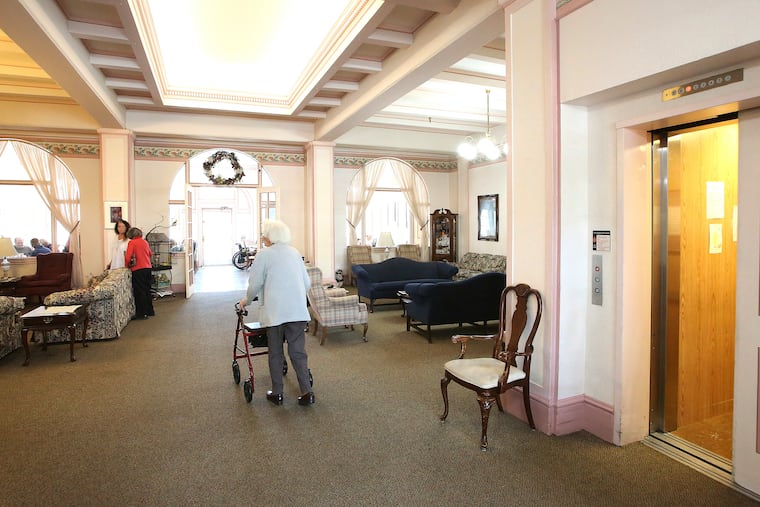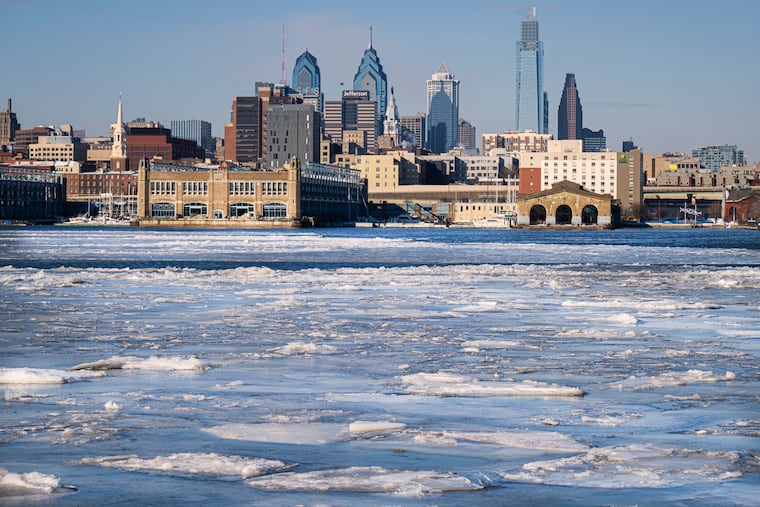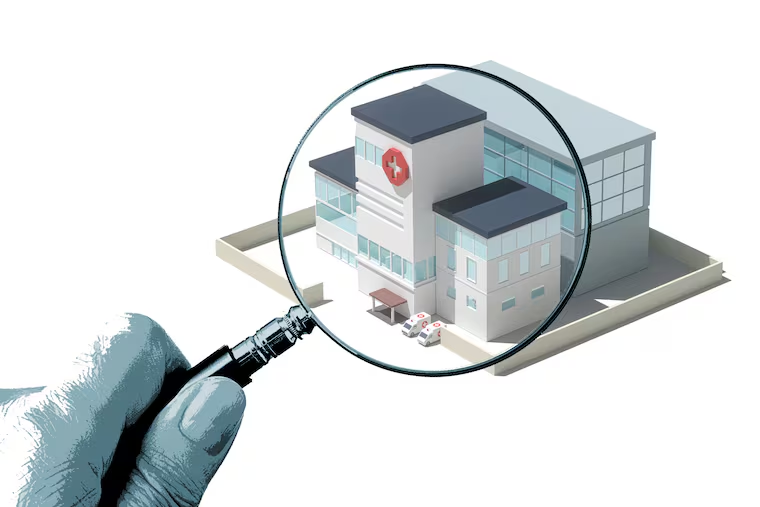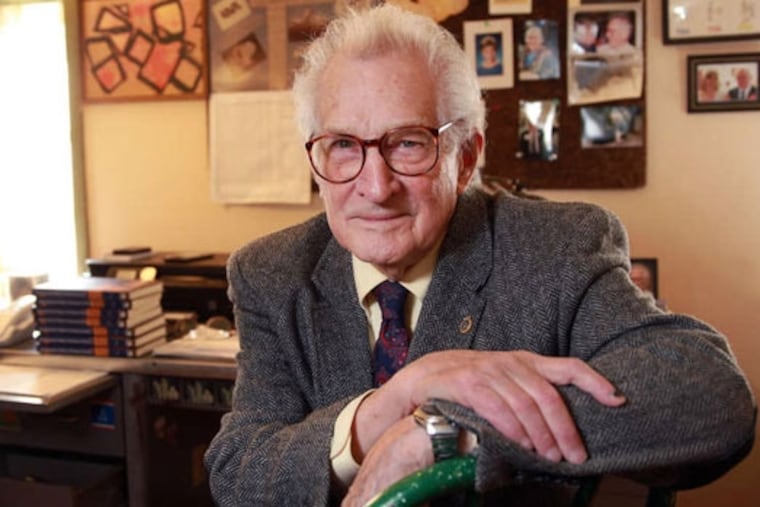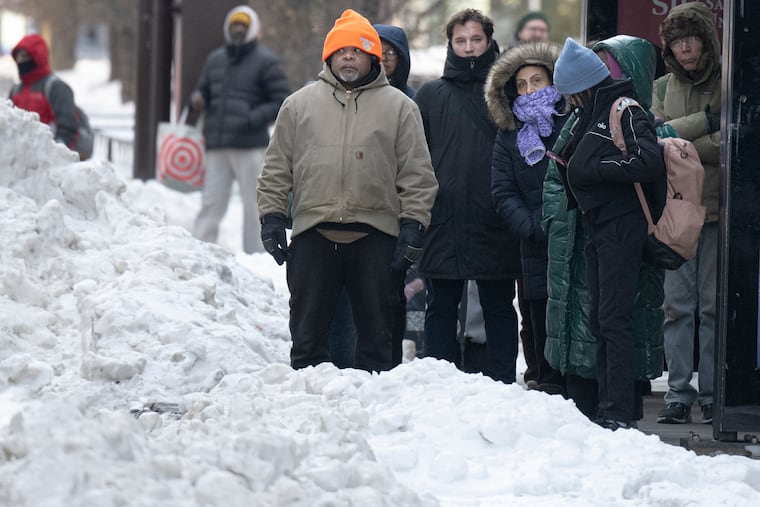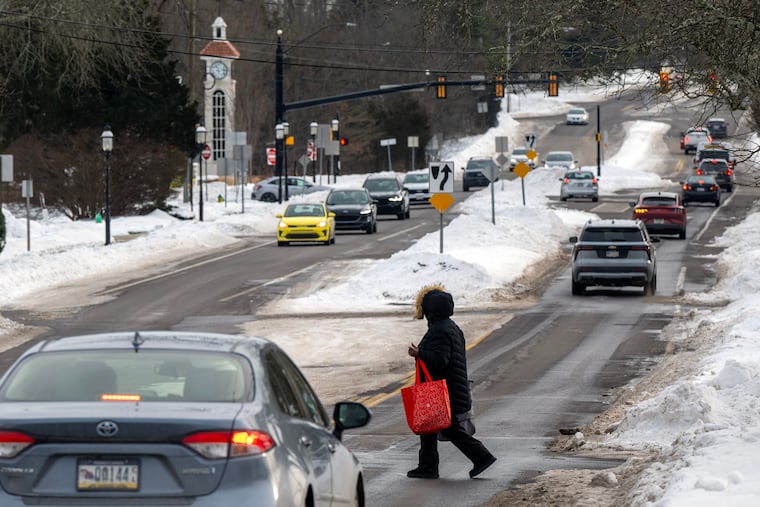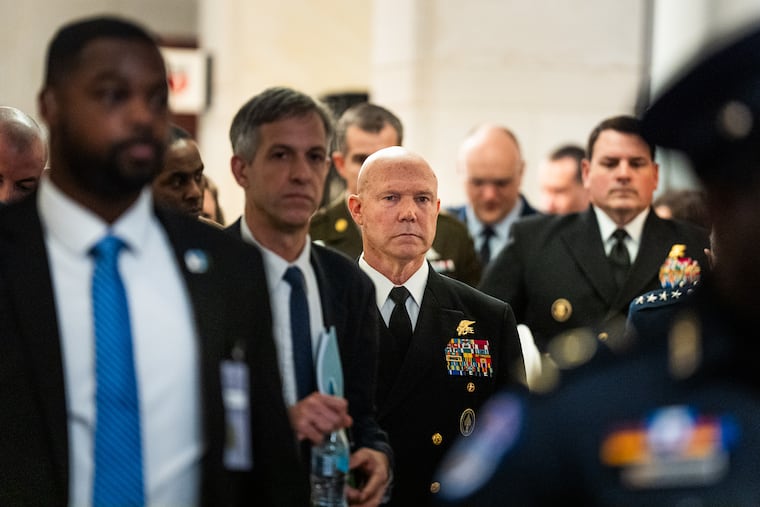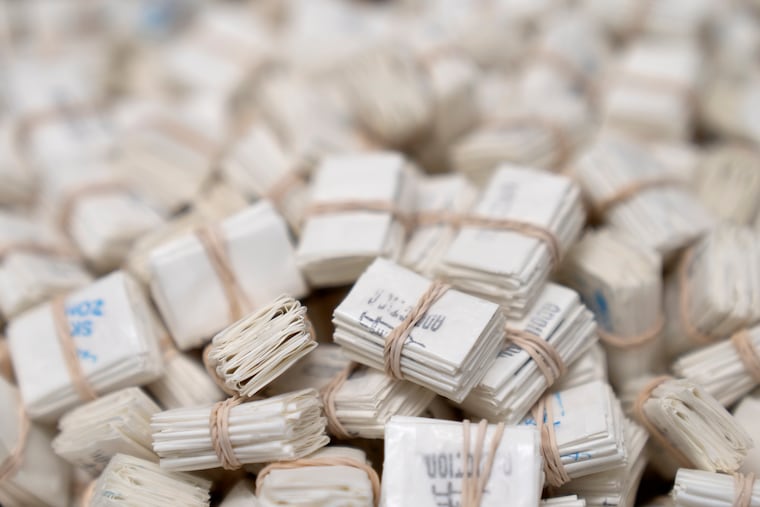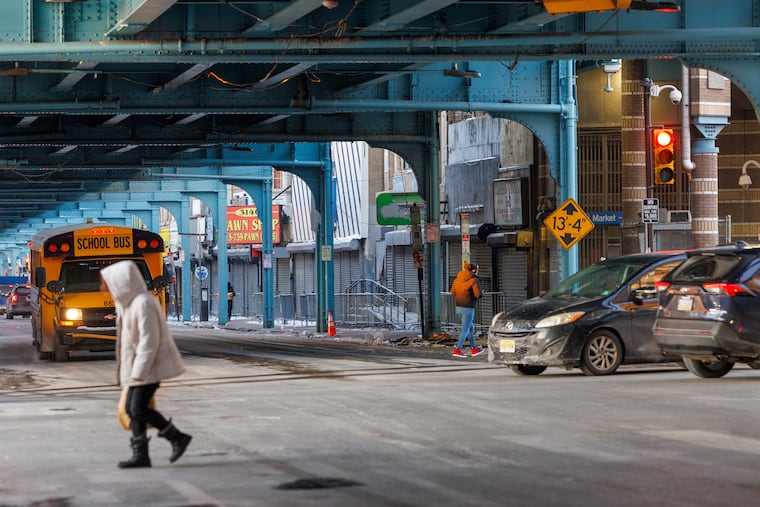Skip to contentPaula Span, KFF Health News
Joanna Fong-Isariyawongse, The Conversation
Barry J. Jacobs and Julia L. Mayer, For The Inquirer
Joanna Fong-Isariyawongse, The Conversation
Joanna Fong-Isariyawongse, The Conversation
Barry J. Jacobs and Julia L. Mayer, For The Inquirer
John Lin and Jalpa Doshi, For The Inquirer
BriarRose Edwins and Hayley Goldner, For The Inquirer
Layla Bouzoubaa, The Conversation
Marcia Dunn, Associated Press
Adela Suliman and Kasha Patel, Washington Post
Marcia Dunn, Associated Press
Adela Suliman and Kasha Patel, Washington Post
Noah Robertson, Tara Copp, and Ellen Nakashima, Washington Post
David Ovalle and Cate Cadell, Washington Post
Geoff Mulvihill, Associated Press
Noah Robertson, Tara Copp, and Ellen Nakashima, Washington Post
David Ovalle and Cate Cadell, Washington Post
Geoff Mulvihill, Associated Press
{"ENV":"Un9/AmMIbE9/f11ZYAsFA3xjUk93DHddfGBkCg==","CONTENT_BASE_PROD":"VWN/RmMMdAdUb1VZdjJaTWhdZAV0IlIFfnNwB3cyUkJoTXAEdDFsBHxdc113InAFf3BkTncie1x/c3NedyJwTX5zYE53IWBCa3BnWmMxYAVoY3NedFRsTGtzeARgMWdZf2B0BGMycAg=","ARC_ACCESS_TOKEN_PROD":"UE17BXQiUUJQWkEGXCJaTWtzZ150InAFf3N8TXcheEx8TXRPdDF8TX9jdAZ3InQEfHNzWncibEx/TXtbdFR4TX5gZ190DFIHaGN3XncidARrc39dYzJ4TGtdf110DFJCf1p7W3QycAR8cHQHdCJ0THxgZ110IWNYfnNwBXciZE1/BXhPdxxWTXwFZ1p0MWdYfE10T3QyVgR/XX9ddyFkBWhNdANjMmdYa2BoT2MMZ1h/BXRAYzJjXGhNYE90IX9Zf1pkAnQLbEJ8cGQGYDJ8CA==","GRAPHQL_KEY":"a29nXFoxewFoBWsGdAtaA3xdUkBgHHxMfFpkBHchb198BXhPdCJ7XH8FeAZ0MngBf2NjW3cyfABrY3xOdBxzXWtjeEB3MlFffHN0QGMMc15rY2hPdAtsTHxzVgZ3MWAGfGBkBmM3CAg=","GATEWAY_URL":"fE13BWMIe0ZUb3NYWjJgA3xgaAZ3DHABfHBoQGMycAd8Y3BAYDJzXWtdaAd2MmQEfwV4B3QicAB8c2hPdwtsBHxzYAZ3MW9ef11VXnYhfABrXV1aYzFsBw==","GATEWAY_SLS_URL":"awRZXXQxXVtQf3ddWBxeA39weE9jDHdef2NWT3cyc158c3RAYAxwTWtgfAd3MnBNfE14BncyZ1l8YGBPYyFgBXxzZAZjMWAGf1p7W2BUbEJrYH9fdjFjXg==","FEEDS_URL":"UHAEAmMIZAV/cAgBWD54A39zY1tjMnBNfHNWQHYyZ19/YHRPYDJ0T3xgaEB0DHBPfFp0QHQycAR/cHQHdyF/XGtgd1pgHHgAfF1wT3dUYEx8c2BNdFRsQmhdZARgDH9dfAVgTXRUYE9rXWNad1RjXnxzZAo=","RESIZER_KEY":"f3BrB3QcUU9TcEYHXAx4A3xzcE5jIndff2N0TWMMZAB8TVJNYBxRXHxgfAZ2Im9ffGNSTncMd19oXWhPdiFgTXxdYAd3DGxNaF1gBGMycAVrWmAFdDFwBmtjdE50IWAEaFpgT2ARCAg=","GOOGLEANALYTICS_ID":"fHB/Q1pURVpVb2QFYDJ4A3xzZAd3ImAEfE18QHQyY1h/c1oHYAx3X39wZARjDG9c","TWITTER_API_TOKEN":"UwUBA10hYEJ+f0FfdyJaT39je1t3DGBMaE1zW2AMeARrc3RNdAxSBHxdf1pjMWQGfnN8B3RUc1x8c2BPdAxnWXxdY190DHBMaFp4B2MLfEJ/TWNbdxxvWWhjYEB3MlFZf01wBGALZ1hoXX9cYAxRXHxgZE1jMXgEa1pnW2BUe118TXtadCFkBX5weAJjMndZfHB4AnQybEJ/c11bYzFnX39NWgZ3IX9ffnBnWmAMXk1/YGQHdjJnWWgFYAd2Mm9dfAVjX2AcWVxrYGtfYwxeBXxgZ1tjC3AFa2NgT2AcUV9/YHdbYwtnWH9ad11jMnhCa1p0BHYhb1l/BXQFYDF/X2gFaE53IXNefwV8QGAxbABoYGBPYBxgAHxNdAZgHGwAf2BgTWBUbAF8TVoHYyJjWXxNVgRjIXNffFAMCg==","GOOGLE_CLIENT_EMAIL":"fE10TWMcUUN8WllEXDFgA39gYAZ3ImBNf3NaT3QidE1/cHhPYyJ0BXxzVkB2MmABf010B3YicABoXWRPdjF/XHxgZAZ0DHgGfGBnXncMVgZ/BXRNdzJRXnxdY152MntcfF1nWnQLYABoXWtfdAtzXXxdf150IWBNf2B3W3cLb15rYGNaYAxsTGhaZAJ0IntfaGBjXXRUcAd8TXxNdyFkAGgFZAo=","GOOGLE_PRIVATE_KEY":"a293Tlg+e018YH8CdjJaB2hNZAV3InwFfF1zXHcxYAR/c3gDdAxeQmtzfAZ0C2QEfHN8BHQLYE18TWROdzFsTHxzaAR3IngFa2N8TXQLcE9/Y2NbdDJ8T3xwa1p3MXBNaGBoBWMMbEJ8BWdedCJSQmtzfAN0DGddfE1zXXQyY1h8WnxPdyFkTX9gd1pjDHxCfF1gBXQyUkJoTXhPYwx8TGhNfE13MW9ffE10TmAMYE1/TXNdYwt/XmhgfAZgVHwBf1p8A3QMXVx/WnRAYBx/X39aZ1pgHFlZf11VW2AydEJrY1YHYBxRWX9aa1tjDFZNf3B8B3YiUVl/WmRNdiFvX2gFYE1gVGNYfnB0BWAMXVh8YHdeYAt/XH9zcEBjIXtff2B7W2MiWV5/c1laYFR/WWhjWk5gC3AAfHB8TmMLeAB8BXROYzJgAX5gfE5jImdZf3NWB2MiZAF/YHdaYFR7XnxNWgR0C2AHaGNkQHQcZAV8TXROdAx8TWtzZ1pjMlFYfmNgBnQLeE9oY2AGdAtnWH9NeAR3IntZfF1gT3chc1l8XXRNYwxkT39zc11jMl4Ga3N3XXQiZ1xoY3QEYwx/WGtdc1p3IXNZfHB4A3QxbEx/Y1oDdDJRWXxNfAN0HHdYa3NwB3YxcE98XXNbYDJZWHxgZANjIm9Yf2BkQHchfAVoYGhPYFRnXH5wZAJgHGdfaF10QGAcYEJ/TVoGYzFnXnwFd15jImNea3BkBGMMUkx8YGNdYDJ7WGhgY15jC39fa2B7XnQyUV5oBXtaYAxnWH8FYAJgHGwBfnB0BmALe158BWgDYzJzX3wFZE1jImdZaGNZW2AMf1loBXQEdiFzXn9adEB3IWNdfGB/W2MycAF8TVoDYBxdXmhNWk9gHFlff3B8AnYxb1l8WmQFYBxZWGtaYAdgMl4AfmNoTXcyXkJoTWgDdzJkQn9jc153MXgFa110TncifE98XVIGdyFwTH5jcE10InxNfnNzW3QMfAV/c3RPdCJkB39jeANjDGxCf014BHQcfEJ8XWNcdBx0QmhNa190Il5MfmNgTXQhZ1hoBWdedwtvWWtdc1x3InxPaF13X3QMYE9/cGROdCJdXX8Ff11jMn9cfHN0A2MiUVhrcHwCdCF4T2hdWkBgHF1ea1p3W2MiZ19/YHxNYFR4TX5gZE1gMntZf3NwT2AMc19/YHtedAtjX39gaE9jC2NdfAVgBGMiUgV/cGNbYyFzX2haYARjImdZa1p3W2Mxe1l8BXtdYDJ3XmhaZAZgMXNZaF1aT3cid1h8WnROYDJRXGtwYAJjIXtcfGBgTmALbAFrcGtfdjF7WHwFdE5jIWNYa3B4TXYxb158c11dYDJzXnxdVgVgC3tcfAV4TmAybE1/TX9ed1R8T39zVV13Il5PfHN/XnRUbEx+c3RAdAtwTGhjdAV0VGQGfnNzWnRUYEx/YGRNdzJWQmtja150InxNfmNjXGMMcEJ8c2AFdBx/WH5zeAJ3IlFYfHN0BncLbExrXXADdAtwTWtwZAVjC3NcfGB/XnQxfABrcGgEdAt4TX5waE9jMlFef1p0BmMLe1h+Y1leYzFgQn9Nc1tjC2BCaF1/XmAMe1l+c3NcYAtjWHwFZAZjDHdfa2B4BWMLbAF8WmdbYyJ8BXxzdAJjDHxCa3BoBmMMY1h+cHdaYwx7WH9waE5jC29ZfGB4B2AcY1l+YGAEdzFjXn5gYE9gMXtcaAVoQGMhc1hrY1pNYAxkAGtgd19jImABf2NWQGMxZ1h+YHQHYDJ3X2tgYE1gMXAAa1pnXWMLYAB/cGACYyJRX2taeE12MntfaAVgBWMid1lrWnQFdyJgQmhdYAV0MXxMa3N0AnQhfAd/cGQFdyFkTH9gZ153InhPa3NnXnQybExrXWgHYzJdWHxjf1tjMl1YfHN3WncLb1l8BWtedzJkT2hNcEB0MmNZfnBkQHQxcAV/c3QHdzF7XGtwfEB0Il5CaFpoAmMLbE1rY2QFYwtjWXxad190MmNYaGBkB3QyeEx8BWtfdjJjWH5gaARgDHtffnBrX3QcfEJ/WmtbdFR/XXxwfAZgHF1ca2N4QGMie15rWmgFYzF/XmtzWVpjIWxPf1poBmMhf1h/cGhOdDF7WX9geAZ2Imdff1prW3Yyb11/cGdeYBxRWXxwa1xgDHQAfAVgQGAyf11/WmBPYBxvXGhjWV5jImdZfHNWAnYiZ1xoTVlaYzFvXX8FY112IWNefFp3X3Yyb198XXBNYwtvXHxwfAV2MlFcfE1aT2Ayb11oWnddYBxZWH9Na110IlJCa2NzW3ccUk9/Y2hPdAxeTWhdYE10ImxMaF1jW3QcdE18c3dbdwtkTXxjdE53HFJMfmN/XHQyeEJ8BWgHdCFwBX9je1x0DHAEfGN0QGMyb1h8WmQFYzJSTH5gdE5jC3BMaGNjXGMLc1hoYGQCdCJsTWhga19gC3tYaGBkTnchYE1/TXBOYzFzWHwFYAVjC2dcf113WmMicABrc3RAYwxZWWtgfE50MWxPfAV0B2MMbExrXVlaYzFnX2tgYEBgVG9ZaFp/X2AMc1loBWQHYAtnXmtafE9jMW9ef110BmBUf1x+YGgDYyF/WXxgdAVgVHtYfAVgB2AMe1hrYHQFYDJRX2hjXVx0IW9cf3BgA2MiXV1rWnwHYzJnXHxaeAZjMnNeaFp4B2MiWV5/BXddYAtgAHxNVgJgHHNef11WTnYxc1xrY1leYzF7XmtaY11gVHBNfmNoBXcLYE1rY2tedDFsQn9de113MnhCf3N0AnQiVgZoTX9ddCFkTHxjc1t0HFIGf014AnQcYEJ/c39cdCFjWXxzdAR0MW9ZfE1rX2MxZ1hrY1JAYzF8TX9dcE90HGwEaFpgBmAxZ1h/cGQDYDJZWH9ga1tjMndYfHBnWnQidAVoY3dbYzFjXWtzcE10IX9ea2BkAmMhY1l/Y2NcdDJSQn5wdAJjMXtZf2B8QGMie15+Y3hNdwtvX35ga1pgMWdYfGNzX2AcbE18c3NbYBx/WHxgf11gHHdcfFp0T2MyY1h8BXdbYFRzXGtweE9gHFlZfnBoBWAxY11oYGNbYDJRXn5gZ1t2Mn9ffwVjX3YidAF/BWNcdjJzX35wY1pgHGdca2B/WmAcYAFrYHQEYyJjXGtdVk9jDFlcf2BoBHYiXgBrY1lcYyF/XGhgaAJ2MWdfa3B7X3QxZEx/XX9cdCFsQn9zY150HGBCf11zW3cyUgZoXWdfdwx4BWtdcAJ0MWBPfE14B3QLeExoXXBAdDJ0THxjZ1t0Ml5NfE10QHQibE98TXBAYAxdWWgFa1pgMnxNfnN7W2MLcE9oTXdcYwx4B2taZANjIl1caF1zXGMifE1/TXNddAt/Xn5zZE5jDHBPaF1aBnQxb198YGACdDJzXn9wYAV3MWdefHBoTXcydE1/WmdcYzJ/WX5jdAZ0DHgBaAVgAmAccAB/TXdfYBx0T2tgY110IWRCfnB4T2Mhc198TVoDYyJ3WX8FZ15jMXtZa1p0TmMyd11rXXgFdiJdXX5we1tjIXNfaAV7XWMyf1lrcH9fYzJgAHxwY1xgMXNZfmNWTWMxY1lrWmBOYyJkAGtzVkBgMn9fa11wA2ALZ15oXVoCYyFzXmtgY1pjMllef2B8BmALfABoY3dedDJWBGhNeE13DGQFa3NSBHQiYEx8XXQGdAt8QnwFeAJ0DHRCf2NjX3cxZE18YGhPdAxSB2hde19gDFZNf3N4BnchY1h/YGRAdAxWQmtdd190MnQEaE1/W2MyXgV8Y2BPYzFzWXxNdE90IntYfwV0B2MxfE9rXWtddFRzWX8FaE5jC2dYfFpoQHQiUVh+YGdbdjJzXn9aZ190MmdYfnBnW2MheAV8WmddYwtvXGtjc15jIXNef3BjXWMiVkx8TVYDYzJRWHwFe15jIW9YfFpgA2BUZ1h/WmRAYDFjXn5jcAJjDH9df1pkT2BUf19+cHhNYDJwB2tgZ19gMXABa1poB2BUY1xoWnRNYwxjXX9gZEBjDF1efAVjW2AyZ19oWmtdYyJvX2hgfAZjIl1dfGB7X3Yhc19+YHxOdjF/X3xwd11gDHdefFp7XGMLf1l+cHgGYDF8TXxde110HHRPf11wBXQyXkx8c2BNdxxkT39jcE10ImQEf110TXcMeE1/TXtedyJ7WXxzc1p3MmBNa2BkBHQLe1x+c3ACdDFgBX5zf11jMXBCfE1wT3QMbEJ/YHROdCJsTH9wdAZjDHdYfGNzX3Qcf1h+YGgFdzJsTWtdcARgC2xCf2NwA3QxYEJrc3daYyFkBWhNcAVjDF4AfmBnXnQibEx8BXwHYwxdXmtjVgZjDHhCa2NZW3QyUV98BWRNYwt7WX5jf152IntffFprXWMLf1l+cHhNYAxdWHxwZARgHGwFf1p0AmMye11/YGtcYFR/XHxaf11jMl1efHB0B2Ayb158cGQCYyJdXXxzc1tgMmdZa11aT2Axf19/cHRPYwxzWXwFd15gC2NeaGB/W2Mif1loYHtbdCFgAWtgYANgVHNda2NZXWAcWV9oYHRNYDJ3XGhaaE50InBPaGN/WnQxeAZ+Y3gHd1RgTGtdYE53IXgGf11gA3cxcE1rYGtadAxkBXxzcARjC3gEa114TmMMUk1rYGQEYwtsTGtzYAZ0IWdYfE1kA2MxY1l8TXQFYwxjWX9ga1x0MmBCfmBoB3cyfE1/cGBNYzJ0QmtjY190IXtdaAVkT3QhYAV8cGdcdCFnWWhga1pjInNZa3NaTmMyb158c11fYyJwQnxwY1p0MX9YfnNzXWAxc19oTXBPdiJ3X3xgZAJjC2NefAVkT3QLfAF8YGQEYBx4AX9wd1pjIntZaFpjX3QyZ1h8c1YFYzFzWHxgd15gDG9dfGBkB2Ayb198BXtcdjJ7X2had1tjDGNff3BkQGAyUVh/XVpPdjJ/Xn9gY1pjDFFYfwV7XWMibAB8TVleYAtvXGtgeAR2Il1ff3BgBGAxbAB+Y11bYAx7XWtweE5jMWQAf01zXncceExrY3wHdDJkT2tdeAJ0C2AHf01zX3QLcAV8Y3NddFR4T3xjeAN0InhCf3NoBmMxfE9rXWRNdCJsTH5zd150IWNYa2BrXncMVk9rY3gFYAxkTXxgZE50MnBCf01gAnQyb11+Y3wDYzJ7XX5wa1pjIllZfFprXWMMcE18c2AEdCJWTWtzZE9gHG9ZaFp8BGMxY1l8WmtfYAtvWH5jfAN3In9Yf1poA2MycE1/cGQDYyJ4B39NdAJjIn9daAV0B2Mhe158BXxNYyFsTGhdWVpgMnNZa3B0TWMLZ1lrWnwGYDJzWX5wf1pjDHtdfGBgA2AMdE1/YGNbYAxZWGtwYAJgMmNYaFp4BnYyWV5oYHdaYyFjXWgFY1pgDG9daGB7XGMhe19/XVZAdiJ4AGtafAdgDFZCf3NdXGMLcAB8YH9fYzJkAX9zXVxgVHNcfwV0AmAyYAZ8c3dcdBxsQmhjVVx0ImRNaF1/XHQLfEx8XXNddzFsT2tzVVx3VGxNfGNwAnQibE9rXXtbdDJ0TX8FaAZ3InRPaFprXHQMf1lrc2NadCJ7XXwFaE9jC3tca11zW3Qxf158XXBOdDF8TH9dYE10InxMfAV0BXQMd1loXXNcYwtjWHwFY113IXNZf2N4TWAye1l8cGddYwxnWH5zdAJ0IWxCa113XGMyY11rYGQEYAxzX39wfAd0IWBCaF1jX2Mhc19/TVpPYyFvXmtwaAZgHHtffHN7XmAyWV18cGRAdjJwQn5wY15jIXNfa1pgTmMhf1x8BWQDdCJgAH5wYEBjMWNefAV/X2ALZ15/XWNeYBxnXGtjXVtgDH9cfHB7XWAyZ1hrWnQDdiFzXnxgfAJjDHdefGB8BWMMUV5rYHtbYBxsAX5wYAR2MlYBa2BkAnYxcAB+Y1ZPdCJwTXxzZAR0DF4Hf3NSTnQLZE9/XX9edAx8Qmtzc1p0C2xPfnN4B3cMfAZoTWAFdBx8BHxaa1x3IWAFf3N8A3QyXgZrc3AGdDFkBXxzcAR0MWBCfE1gTnQLbE1/XWQFdzJwTX9ddAN0VHBMf2N/W3cMXk98dgwK","BLUECONIC_ENDPOINT":"fFpnTmAMe0NrBXtFdzJ4A39zZEBgMnNef3B8QGAMc198c1pPdxx0T39ze150HGQHfF1gB3chYEJ/c3NbYzJwBWtgd1tgHFYBaF1wQGMifEJ8XX9adFR/WWtjfAZ2IWNZ","BLUECONIC_STORE_ID":"VFp3XWMcdE9TcEVHdAtaA3xgeEBjMnRCf2N4BncyVkJ/YHRAdzJgT39zYAZ3HHAEa2NSTnQMfAR/TXwHdAxjXHxjWk9gMmQFfF14TWAMf198WnxNdwxsBH9NcE90DHgGfF1oBXQie11rXWdbdjJ4Bw==","BLUECONIC_KEY":"aARjQ3Y+RQN/WmhNWj5gA3xjeE9gDHNZf2NoBmAcdE1/Y1ZAdjcICA==","BLUECONIC_SECRET":"fnB3A1wIRV5+YGRAWiENA39afE10MntdfHBgT2MMcEJ/cHwGYzJsB3xwdE50VHwAf3BgTmMyf118YGRPYwt8QnxdfAd0DHQBa2NjX2AxY198XWBOYAtvWXxdWk9gDHQHaFp4T3cRCAg=","AMP_AUTH_BASE_URL":"a3NgB3cLe0JUcGBNYyFSA3xwa153Imdff2N0T2Mid198c1pAdBx0BnxzWVt2MnNYf01oQHRUfEx8Y1ZAdAxnXmtjYAdjMn9ff2NrW2MyZ1hoWmAHYyFsT2taaE5jIWNYf01nWnQxY19rY1VfdDF8T2hgdE5jMnBMa2N3WmMMWVxoTWdadCcICA==","AUTH0_DOMAIN":"f11jBV0uXUZUf1VfYyEFA39jVgZ0MnAFf2B0BnQyd1x8c3hPdiJzWGtjUk9gMmRNaF10QHQidAB8cGBPdCJ0Qg==","AUTH0_CLIENTID":"fmNrQVoid0ZQf3wDXDFgA39jdAdgHGNdfF1gBncce118c2gHYFR/XHxdVkB3ImAAfGN0BnQiZ1h/WndbdzJ0AXxjYAV3HGRCfHNSBGMxfE1rYGBAdxxsQmtgeAZ3DHRMf2BkQGARCAg=","PIANO_ID":"U2NVWmAMZwdSBFpNWwsNA3xaaAZ0InwEfHN4BHcicAF8Y2hPYAxnX3xdeAo=","MIXED_CONTENT":"UFprAV0iWU1+f39DYDFSA3xzYEB0HHABf2B0QGMic1h/cGBAdBxwBHxwdE90MnABf3NZWmMydAZoWnhAdBx3WXxwfE93DGNdf2NrW2MLY1l8c3AHdjJRWHxaeAR2IWAGa1pjWncxYE8=","VIAFOURA_SITE_UUID":"UH9ZAWBUWgVVc2NcYyJaQmtjY113IXgEaGNzWncxbAV+c3NcdCJeTGhNZAV0HF1YaE14BHQLYAZ/c39adCJ4THxje110MnhPfHN/XnQLfEx8Y2hAdBxeBn8FZAR0HHRPaE14A3QMXk9rXX9adwt4CA==","GOOGLE_CLIENT_ID":"UGAAAlsyXkxVY3RPWiJaQn9NcAN0MXwFfE13W3cxeE1oTWNcdyJkTWtzcE1jMWwFfwVnXWAMUgV8Y3NfdyF4BWtdc1x0C2QEfAVoTmMyY1x8WnhPdBx/XH9NVV1jC3BPfnBkB3QLfE9/TWtdYDFwTX8FeAdgC3NYa2BkT3QiXVl8cGtedzFkAH9aa192Mndda2BjWnQhY19oTXtadCJkAGhdWk50Ml4FfF1WT3Qye198XXRPdCFkTX9jY1t3InBCfF1jW3YybEJ/TXQHdDJ0CA==","AUTH0_BASE_URL":"U1ljB3dVfExrf2dOdBxaBXxddE10MXAEa2NzWnQhYE18c3ACdCF4BXxzZAJ0MlJPfHB4BmMMbEJ+YGdbdCFnWHxNY110VGdYfnN8BndUZEJrY2NcdAx8T3xwa15gMn9YaGBkQGMye1x8QAwK","CHARTBEAT_DOMAIN":"a113WnQyfAdVcHtOdC5kA3xzVgZ3InQFfGBoT2AMYE18cGRAYyJ3X2hdfEB0HHBN","G_OPTIMIZE_CONTAINER_ID":"fE1nXlwyUgZ8Y3wHWCJgA39daARgDGNYf3N8TXQMbAR/XXBAdCJsTHxzcARgAQgI","G_TAG_MANAGER_CONTAINER_ID":"UwRrWXdUAAFSWntGdxxaT2hdf1t0HGwHfGNSQHQMZAV8TXxPdBxgB3xQDAo=","SF_CLIENT_SECRET":"fnBBTmAMb1poBGNOXQt4A38FdAZjMnhNf2NWBnQiYEx/YHQHdiJ7X3xNYE53DHQHfHNgB2AceEJ/TWhNdiJ7X3xNaE10MmNZfE1kBHQcfE98BWRAdBxgB3wFaAdgHHwGfF14TncydAV/XWhAdBx8B39jUgZjDHdffE1aTnYyf1l8YHxAYyF8BHxjWk90DHQHf2N8QHcid1l8c3tbYDJ0BHxzWgd0MnAEfHNkT3YiZAZoTXxAYzFsTXxwYAo=","G_RECAPCHA_V3_KEY":"f3B4T3YhWgdrWkVCWiJaB39zeAN3IlIEaGNrXXcycE9oTXwCdCF4T3xjZE90VGxNfmNSBnQcbAd8Y3BNdAx8QmtjdE53IWRMaFp4BWAMf1l8XWNbdCJWT39zZ110MngEfGN/XHciVgV/TXwDdjJkBXwFZ110MWBMa2YMCg==","G_RECAPCHA_V2_KEY":"VHAJA10uXUF8Y3dGWC54A3xNeEBgDFZMfGNoTWAyc1h/Y2QFdAx3WXxweE53IngEf010BXQcf158YHhOYwxRX39wfEBgMn9da11WT3QMdE1/c11adzJzXHxNeEB0HGBMfHBoTXccdAVrXXRAYAxeAXxNa1pjDHNef1poCg==","GROWTHBOOK_CLIENT_KEY":"fmBFRFwubAFrXWBOdyJaQnxNdAR0DHRNa3NgT3ciUkxrY2Nddwx8BXxdcAd0MngFfGN/XXchbAV8Y3RPYAtkCA==","SOPHI_HOSTNAME":"a1l8A1w+RQZTYEYFdC5WA3xzVk93DGNdf2NSBnQccEJ8Y1JAdBxkAWhdfEB0InBNa11oB3cydAdrWmgK","HTL_SCRIPT":"VVldB1gxe0x8Wn9NWwsBA3xzaE9gDGNcfHBgTnQycAF/c3hPYwx0Qn9zfE93DHRPfE1aB3QMc1x8Y3Nadwx0BGtjcEB0ImAGa2BjWmMLb1lrXXRPdAx8BHxdfEBjDHwHa1p3W3RUY1l8TXNadCFvXHxNc1p0VGNdaGN4TXcce1l8cGNdYwx8BGtzXVx3IWxN","LIVEBLOG_WS_SERVER":"Ul1nBFsxXQZVBV1AWAt8A3xgfAZ0InAEf3N8B3QycEJ8cGBAdwx3WWtjWk93MnQEaF1wT2Ayc118Y2BAdwx0AWtgZEBjDHwEf2BoB2MibAZrWmtaYFRgBw==","SOPHI_SCRIPT":"a29BWVwMUQRQYF0FWlRGA3xjZE92ImQBf3N8BnQceE1/Y2QGdyJnXXxNaAZ0MnwGfGNkBnQMd1x/cHhAdyJwTGtjc1pjC29YfF1wBmAxbEJ8Y11bdAt8BmtdaE53VGAAfE13W3QLb19rYHdbdiFvWXxdcARgMW9da2NoTWBUb15rY2tdYAx0TWtweE10MWAFaGNzW2AceAZ8TWNcd1RnXWhNVV12MWQEa1p4Cg==","STATS_WIDGET_CLIENT_ID":"fH9nQl0+WVhrYFVGXRxsA39zdE9gMnNefGB0BmMMc158cHhAdiJ3WXxzYAd0DGQBf3NoT3cMdAV8cGBPdyJzXnxge1tgMmdf","_id":"d4d24b06a6981e446d98247f7395aae77ec5bbc611e38302e6bf0450002d530a"}
